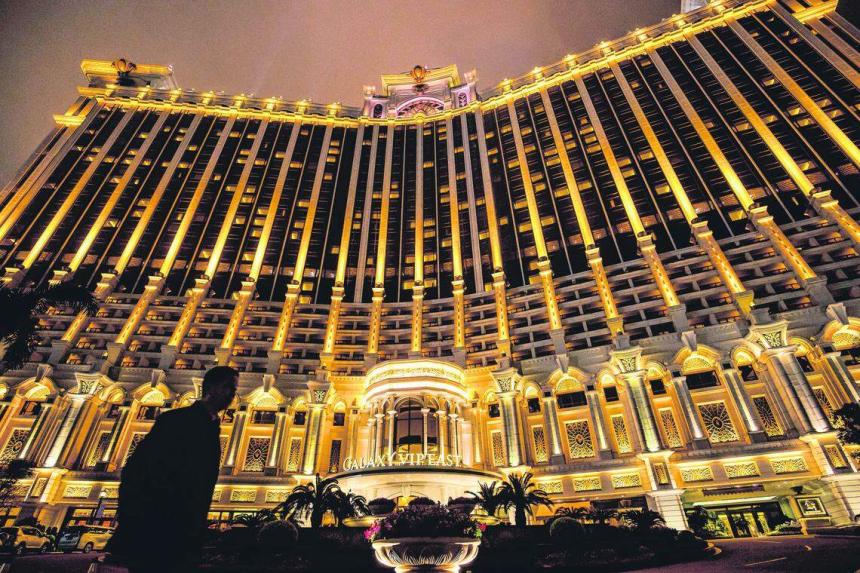BANGKOK – Two of the world’s top casino operators are laying the groundwork to potentially establish gambling facilities in Thailand as the industry looks to hedge against a deteriorating outlook in Macau.
Galaxy Entertainment Group and MGM Resorts International are studying the potential of opening casino resorts in the country, according to the people, who asked not to be identified because the matter is private.
Galaxy, the gaming, retail and hospitality group controlled by billionaire Lui Che-woo, is also exploring starting gaming operations in the United Arab Emirates (UAE), some of the people said.
Galaxy shares extended their rally to as much as 5.3 per cent in Hong Kong trading on Friday, while MGM China, a subsidiary of MGM Resorts, rose more than 6 per cent.
The moves helped push a Bloomberg Intelligence gauge of Macau casino operator shares up more than 5 per cent.
The early efforts to enter new markets reflect casino operators’ anxiety over a deteriorating outlook for Macau, which once pulled in six times the gaming revenue of Las Vegas and delivered historically high returns.
China wants the enclave to shift away from gambling towards entertainment and has cracked down on high-rollers it suspects of money laundering while imposing heightened scrutiny on gaming activities.
While China’s reopening has sparked a tourism surge that helped Macau’s gaming revenue return to about 60 per cent of the pre-Covid-19 level in May, the boom could fade later in 2023 as pent-up demand eases and increasing flight capacity sees more Chinese head overseas.
It is also likely to take years for the city to add more attractions and non-gaming events to draw in enough visitors to fill the gap left by VIP gamblers, who used to account for half of total gaming revenue.
With the potential for both Thailand and the UAE to legalise casinos in coming years, operators are seeking to get a head start.
Thailand is one of the world’s major tourism destinations, particularly for visitors from other parts of Asia.
Pre-Covid-19, the Chinese were the largest group of tourists to the country, accounting for about 28 per cent of total foreign arrivals, followed by Malaysians and Indians.
The UAE could pull in as much as US$6.6 billion (S$8.9 billion) of gaming revenue annually and eventually surpass Singapore, home to the renowned Marina Bay Sands resort, according to Bloomberg Intelligence analyst Angela Hanlee.
Galaxy has already set up offices in both Thailand and the UAE to promote its operations in Macau, while also using that local presence to glean on-the-ground information, according to people familiar with the matter.
MGM, which is set to manage an entertainment resort in Dubai, has set up a base in Thailand and was one of a number of firms that spoke with a Thai parliamentary committee looking into legalising casinos, the people said.
The discussion took place before May’s general election and, while it is unclear what legislation the new government will enact, the committee’s proposal that several casino resorts be established was approved by the House of Representatives in January.
A representative for Galaxy did not comment on the group’s plans.
MGM has no base in Thailand and it has not spoken to a committee, a company spokesman said in an e-mailed statement.
Separately, Las Vegas Sands has repeatedly expressed interest in Thailand.
Chief executive Robert Goldstein said during an earnings call in January that the group is “looking hard” at the country and would love to have a presence in the market.
The companies are in a good financial position for expansion.
Galaxy maintained more cash than debt through Covid-19, due to the company’s conservative financing and spending strategy over the past two decades.
MGM’s so-called asset-light model has seen aggressive sales of properties that are then leased back, bolstering its cash position, while Sands’ US$6.25 billion sale of its Las Vegas properties has provided it with ample funds.
While any entry into new markets depends on Thailand and UAE removing legal restrictions, the industry expects change is on its way.
Even though Thailand is still in the throes of a leadership transition, the casino resort proposal won cross-party support and is widely expected to be given the green light by the new government.
Bloomberg News reported in May that there have been early discussions in the UAE on legalising gambling and some operators have held informal talks with authorities, though senior government officials have said there are no imminent plans to allow the pastime.
Wynn Resorts is planning what it is calling a US$3.9 billion “gaming” resort that has fuelled speculation the ban may be lifted.
MGM chief executive Bill Hornbuckle said on a recent earnings call he anticipates further developments on the legalisation in coming months. BLOOMBERG

